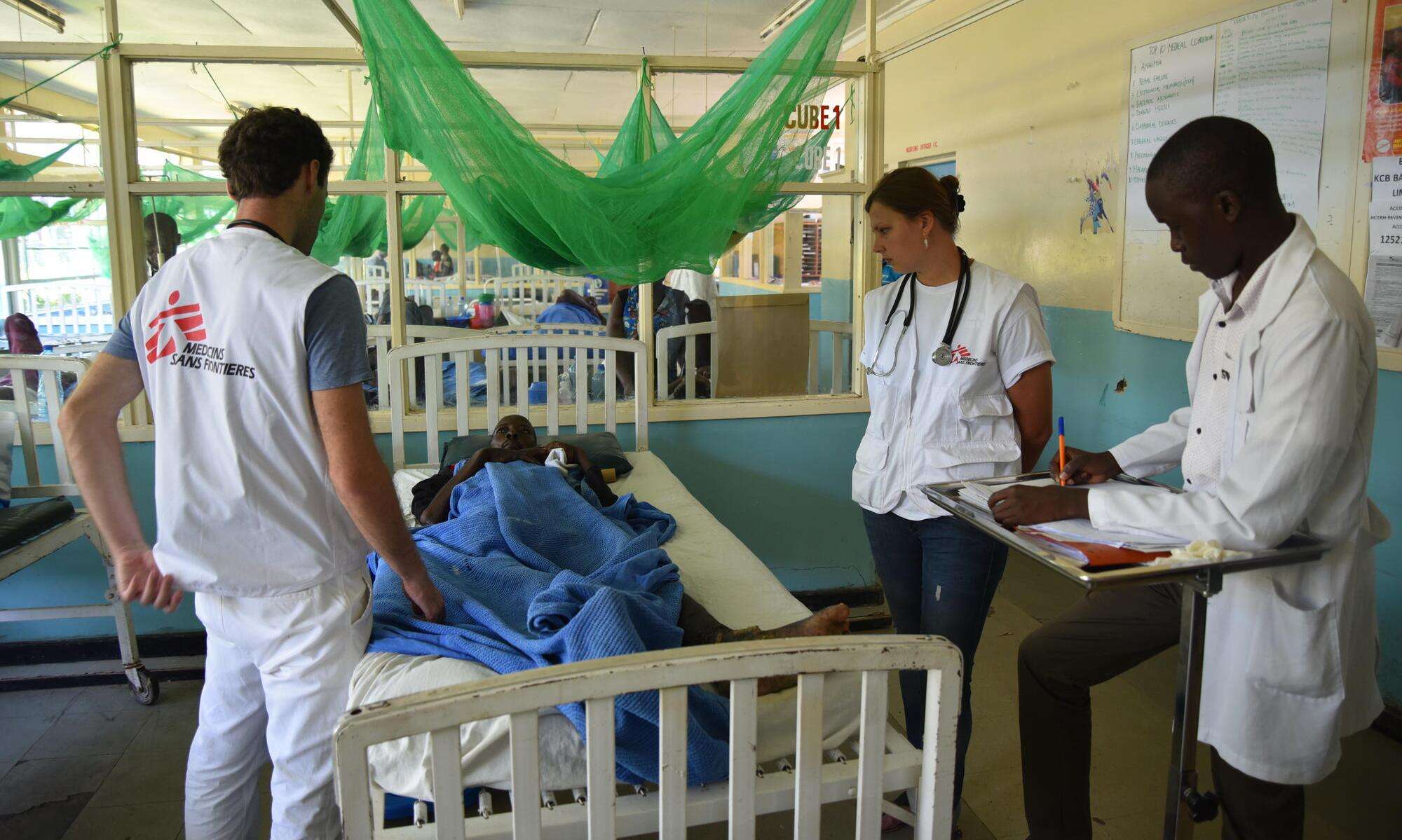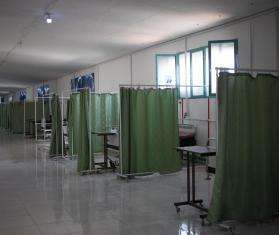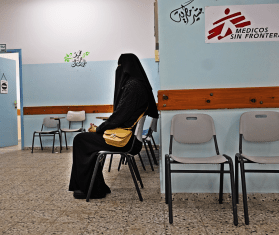NEW YORK/GENEVA, MARCH 30, 2023—The international medical humanitarian organization Doctors Without Borders/Médecins Sans Frontières (MSF) called today on ViiV to immediately take steps to urgently expedite people’s access to the HIV prevention medicine long-acting cabotegravir (CAB-LA) in high-HIV-burden low- and middle-income countries (LMICs), where it could have the biggest impact on preventing HIV infections. Specifically, the pharmaceutical corporation, which is the sole manufacturer of this injectable, must provide transparency on the current available supply and planned geographic distribution, said MSF. Knowing how much CAB-LA exists and where it’s being allocated would put treatment providers like MSF in a better position to advocate for access for people who need it most.
As shown in clinical trials, CAB-LA is currently the most effective form of pre-exposure prophylaxis (PrEP) for people at high risk of contracting HIV and was recommended for HIV prevention by the World Health Organization WHO in July 2022. However, ViiV’s continued lack of transparency around CAB-LA's current available supply and how they plan to distribute the drug geographically pose barriers to accessing this medicine, particularly in LMICs. For example, the corporation has been unable to assure MSF any amount of CAB-LA for MSF medical programs in Eswatini and Mozambique this year, where MSF would like to start offering the drug to people at high risk of HIV.
“ViiV should be ashamed. It has a lifesaving HIV prevention drug at its fingertips but is failing to ensure there’s enough available for people who need it, and is providing no transparency as to where the available supplies of CAB-LA are being used,” said Dr. Helen Bygrave, chronic disease advisor for MSF’s Access Campaign. “For over eight months, we’ve been in contract negotiations with ViiV to procure CAB-LA for use in MSF programs. The corporation has been adamant that there would be sufficient supply of CAB-LA—astonishingly even arguing that demand for the drug would be low. And yet, we’re currently unable to procure CAB-LA to meet the demand we’re seeing in MSF’s medical programs and hearing about in our discussions with health officials in LMICs.”
For people who need CAB-LA to protect themselves from contracting HIV, ViiV’s supply strategy is irresponsible and short-sighted. Despite repeated calls from civil society to increase CAB-LA's supply, ViiV’s current global monopoly is clearly unable to meet urgent global health needs. While three generic drug manufacturers were selected this week to produce CAB-LA under a July 2022 voluntary license agreement with the Medicines Patent Pool, it may take as long as four to five years for these companies to make generic CAB-LA commercially available. Additionally, ViiV’s efforts to scale up its own manufacturing and supply capacity by increasing batch size and opening a second manufacturing facility are overdue and unlikely to see results until sometime in 2024.
“It is infuriating that ViiV is deciding on its own where CAB-LA is available regardless of urgent health needs,” Bygrave said. “Until there are more producers on the market and normal procurement can proceed with appropriate supplies of CAB-LA, the corporation must do more and reprioritize its global distribution to people at highest risk of contracting HIV, especially in LMICs.”
CAB-LA, administered as an injection every two months, is more discreet than the once-daily oral PrEP pill and could be key to turning the tide against new HIV infections, particularly as the daily oral PrEP pill can be a burden that undermines adherence.
“Oral PrEP is very important in my life because, if I happen to sleep with an HIV positive partner, it protects me from getting HIV,” said Lindokuhle Dlamini, a woman taking oral PrEP through MSF’s programs in Eswatini. “The main challenge that I face as I take PrEP is that I sometimes forget to take my PrEP pill. If I received injectable PrEP every two months, it would make it easier to take it because there would be no need to be constantly worrying about taking my pill every day.”
ViiV must improve failing access strategy for lifesaving HIV drug
ViiV must do more to ensure people in low- and middle-income countries, including MSF patients, have access to injectable PrEP as generic versions are likely years away

Kenya 2020 © Paul Odongo/MSF



